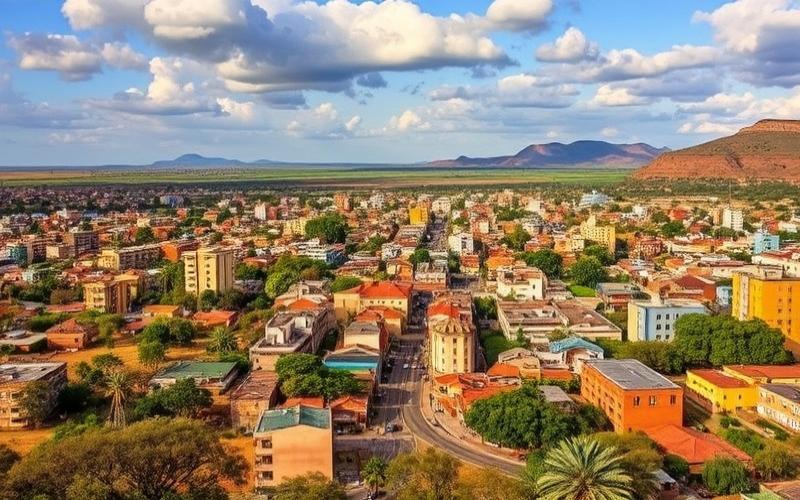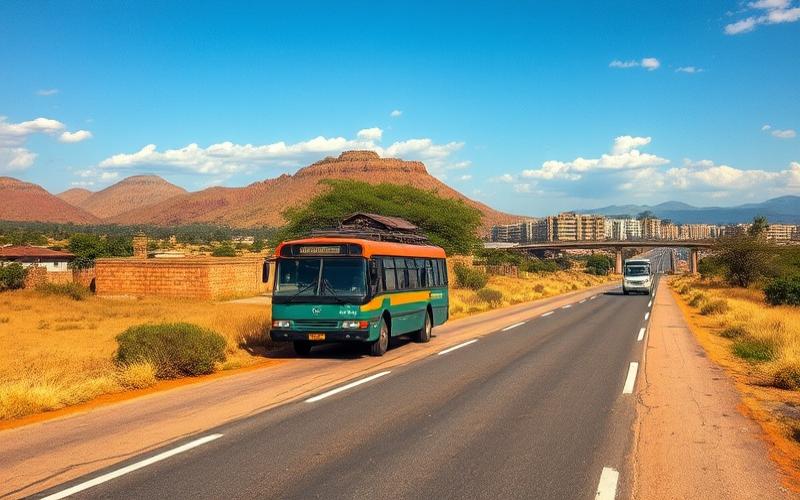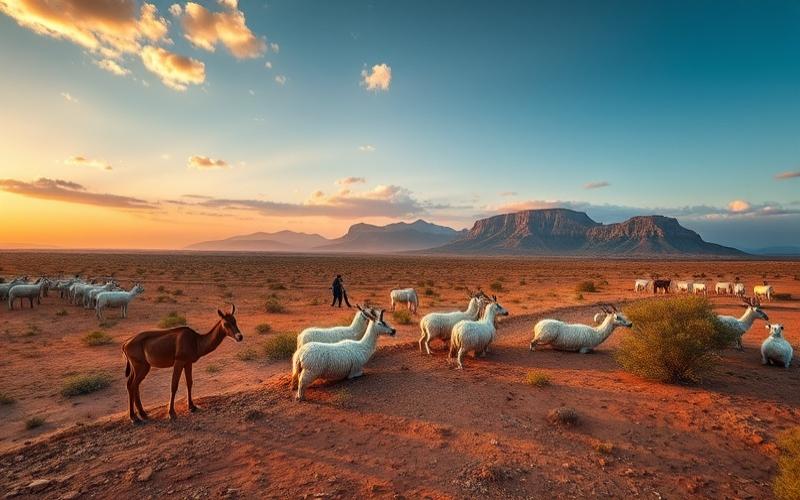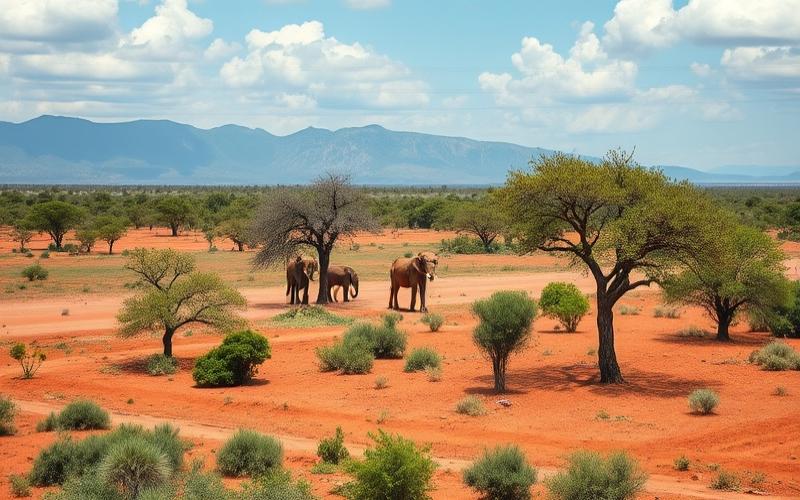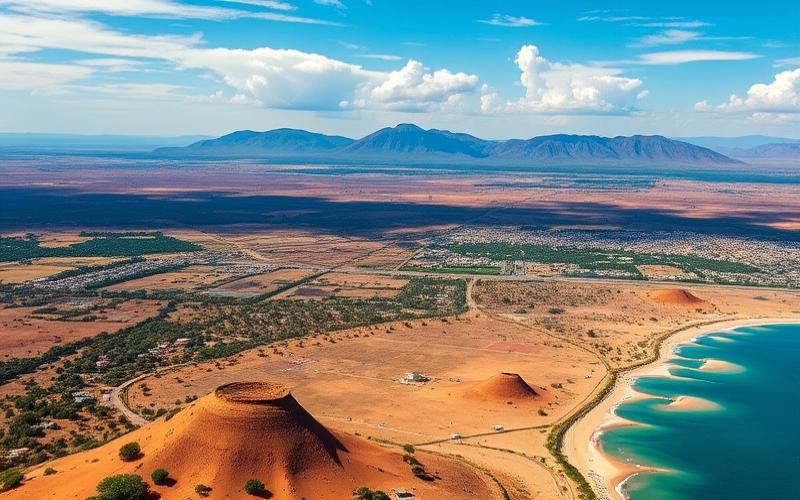
 Published on and written by Cyril Jarnias
Published on and written by Cyril Jarnias
In an increasingly connected world, staying close to loved ones despite distance becomes a significant challenge, especially when living in South Africa, a country rich in cultural diversity but sometimes constrained by uneven communication infrastructure.
Whether through video calls, social media, or instant messaging, many innovative and accessible solutions now exist to preserve family and friendship bonds.
This article explores best practices and technologies to optimize these exchanges, while considering the specific realities of the African continent.
Choosing the Best Internet Service Provider in South Africa
| Provider | Network Coverage | Connection Speed | Available Plans | Cost | Customer Service Quality |
|---|---|---|---|---|---|
| Telkom | Good in urban areas, limited in rural | Fiber: fast, ADSL: variable, 4G | ADSL, fiber, mobile, bundled packages | Affordable to moderate | Mixed reputation, sometimes long wait times |
| Vodacom | Very extensive, mobile leader, 5G: 52% population (urban/suburban) | 4G/5G: fastest, fiber via partners | Prepaid, postpaid, data-only, fiber FTTH | Moderate to high | Very good, effective assistance, positive ratings |
| MTN | National coverage, strong rural presence, 5G expanding | Solid 4G, fast 5G in covered areas | Various mobile offers, fiber via partners | Similar to Vodacom | Good, but complaints about dispute resolution |
| Rain | 4G/5G: major cities, some small towns, no rural coverage | Fast 5G (in covered areas), variable 4G | Data-only, unlimited 4G/5G, no contract | Very competitive | Customer service considered improvable, digital support |
Internet Coverage Statistics (2025)
- Internet penetration rate: approximately 43.7% of the population.
- 5G: Vodacom covers 52% of the population, mainly urban and suburban. MTN and Rain are expanding their networks, but coverage remains urban.
- Fiber optic: available in major cities (Johannesburg, Cape Town, Durban), gradually expanding to suburbs and semi-urban areas.
- ADSL/Copper: rapidly declining, being replaced by fiber and 4G/5G.
Fixed and Mobile Connections
- Fiber optic: best option for stability and very high speeds (up to 1 Gbps). Mainly available in urban centers.
- ADSL/VDSL: still available via Telkom, but less performant and gradually being phased out.
- 4G/5G mobile: most widespread solution outside fiber-connected neighborhoods. 5G speeds exceed 500 Mbps under optimal conditions.
- Satellite (e.g., Starlink, Stellar Link): alternative for isolated areas, stable bandwidth, high cost, low latency for Starlink.
Technology Trends
- 5G: Rapid expansion by Vodacom, MTN, Rain. Used mainly in cities and suburbs.
- Fiber optic: Rapid growth, multiple players (Openserve/Telkom, Vumatel, Frogfoot) deploying networks.
- Satellite: Starlink expected, already available via Stellar Link for rental for temporary needs or uncovered areas.
User Reviews
- Vodacom: praised for speed and stability, but higher cost.
- MTN: commended for rural coverage and reliability, some criticism about customer support.
- Telkom: appreciated for affordable offers, but considered less performant on ADSL and customer support.
- Rain: attractive for unlimited no-contract plans, but criticized for network quality and support.
Recommendations by Profile
- Light users: Rain (affordable unlimited 4G/5G), Telkom (entry-level ADSL/fiber).
- Families: Fiber optic via Vodacom, MTN, or Telkom (better stability, simultaneous sharing).
- Professionals/remote work: Fiber FTTH (Vodacom, MTN, Telkom) preferred for stability and low latency; 5G (Vodacom/MTN) as backup solution, satellite (Stellar Link/Starlink) for uncovered areas.
In 2025, Internet connectivity in South Africa is progressing rapidly, driven by fiber optic and 5G in major cities. Vodacom dominates mobile, followed by MTN, while Rain innovates with unlimited data. Telkom remains key for fixed services. For remote areas, satellite (Starlink, Stellar Link) emerges as a reliable solution. The choice of ISP will depend on specific needs: mobility, volume, stability, or budget.
Good to know:
For extensive network coverage and fast connection, Vodacom and MTN dominate in mobile, while fiber optic from Telkom and Vumatel offers high-performance fixed options in urban areas; for the best value for money, Rain provides flexible plans for mobile users.
Essential Communication Tools to Use from South Africa
Reliable digital and traditional communication tools in South Africa:
| Tool / Service | Description | Approximate Cost / Terms |
|---|---|---|
| Very popular instant messaging app, free voice and video calls via Internet. Accessible on smartphone and web. | Free (excluding data or Wi-Fi cost) | |
| Telegram | Secure app, suitable for large groups and sharing large files. | Free (excluding data or Wi-Fi cost) |
| Zoom | Reliable video conferencing for business meetings, distance learning, or private calls; free version limited to 40 minutes per group meeting. | Free version + paid offers (~$15-20/month) |
| Skype | International video/audio calls, instant messaging; option to purchase credit to call landlines/mobiles abroad. | Free between Skype users; affordable rates for calls to phones |
| Mobile telephony (MTN, Vodacom, Telkom Mobile) | Extensive national coverage with various voice/data plans including economical international options. | Prepaid plans from ~50 ZAR/week; international options from ~0.99 ZAR/minute |
| Prepaid SIM cards | Easy purchase in supermarkets/airports/pharmacies to use voice/SMS/data without long-term commitment. | SIM from 5-10 ZAR + customizable top-ups |
Other traditional tools:
- Landline phones in hotels/business centers.
- National/international postal services.
Brief Cost Comparison:
- Apps like WhatsApp/Telegram are free excluding data consumption.
- Mobile Internet connection remains expensive compared to Europe; prioritize weekly/monthly “data bundle” plans.
- Zoom/Skype offer basic free service; upgrading to premium is generally only necessary for intensive professional use.
- Prepaid SIM cards allow precise control over communication budget.
Indicative example:
| Call Type | Tool | Estimated Cost |
|---|---|---|
| Local call | Mobile | ~0.60–1 ZAR/minute |
| International call | Mobile | From ~1–2 ZAR/minute |
| International call via app | WhatsApp/Skype | Free (excluding data/Wi-Fi) |
Best Practices to Optimize Connectivity:
- Prioritize free Wi-Fi hotspots in shopping malls, cafes, or public spaces to limit mobile plan consumption.
- Always opt for a local SIM card during extended stays rather than expensive international roaming.
To ensure security on public or unsecured connections:
- Use a reliable VPN to encrypt communications and protect personal data against interception.
Managing Time Zone Differences:
- Always check the time difference (+1 hour during European summer vs. South African time).
- Use Google Calendar or Outlook which automatically convert invitations based on the time zone set in the app.
Reliable Solutions for Sending International Packages/Mail from South Africa:
List of recommended operators:
- DHL Express
- FedEx
- UPS
- South African Post Office (SAPO)
Tips:
For more efficiency/competitive prices:
- Compare delivery times/costs based on urgency using simulators on official sites;
- Prefer private “express” services if speed is required;
- Check customs restrictions by destination before shipping;
For any effective digital communication in South Africa, it is recommended to primarily use WhatsApp/Telegram coupled with a local SIM card, maximize use of public Wi-Fi networks protected by VPN, and schedule video conferences according to the local time zone. Major mobile operators also offer various affordable packages including local/international SMS/calls/data tailored to both professional and personal needs.
Good to know:
WhatsApp and Telegram, widely used in South Africa, offer free communications, while Zoom and Skype facilitate video calls; opt for prepaid SIM cards for low-cost international calls, using free Wi-Fi and a VPN to secure your connections.
Tips for Maintaining Strong Bonds with Loved Ones from South Africa
To maintain strong bonds with loved ones while living in South Africa, several practical tips exist, combining modern technology and personal gestures.
- Using instant messaging apps like WhatsApp, very popular locally, allows quick exchange of texts, photos, and videos at any time.
- Organizing regular video calls via Glide, WhatsApp, or Skype to share important moments (birthdays, family celebrations) even at a distance. For example, Lucie testifies:
“Every Sunday evening, I video call my parents to show them my daily life in Cape Town. We celebrate birthdays together despite the distance!” - Creating a family group on Glide or WhatsApp facilitates sharing news and organizing group calls.
- Sending handwritten letters or personalized packages provides a strong emotional touch. Marie recounts:
“Receiving a letter written by my sister always brings me as much joy as a video call. Packages filled with French treats are highly anticipated here!” - Regularly sharing photos and stories on social media (Instagram, African version of TikTok) helps stay integrated into the daily life of close circles.
| Tool/Action | Practical Use | Testimonial/Result |
|---|---|---|
| Instant messages and calls | “Easy to reach my friends whenever I want!” | |
| Glide | Asynchronous video messaging | “I show my walks to my family when they’re available.” |
| Letter/Package | Personal touch | “The souvenirs received warm the heart!” |
| Social media | Sharing daily moments | “My loved ones comment on all my adventures…” |
Specific Challenges
Time difference: It can make synchronization for calls difficult.
- Solution: Schedule a fixed weekly time slot suitable for both time zones; use asynchronous voice messages via Glide if needed.
- Example: Paul schedules his video calls every Saturday at noon (French time), corresponding to early afternoon in South Africa.
Cultural difference:
- Adapting to the local context can create a sense of cultural distance from loved ones remaining in France.
- Solution: Regularly explain daily life through anecdotes shared during video calls; invite family to discover South African culture by sending local products or explanatory videos.
- Example: Sarah films the African market near her home to introduce these unique colors to her grandmother who remained in the Jura.
Bonus Tip
Obtaining a virtual French number using tools like OVH/SIP allows easy accessibility from France without excessive costs or technical complications.
Maintaining the bond therefore requires proactive organization but also a regular dose of spontaneity and adaptation.
Good to know:
Use apps like WhatsApp or Skype to organize regular video calls during special events, while considering the time difference; sharing daily moments via social media also strengthens bonds. In South Africa, sending packages with local souvenirs adds a personal touch and overcomes cultural distance.
Disclaimer: The information provided on this website is for informational purposes only and does not constitute financial, legal, or professional advice. We encourage you to consult qualified experts before making any investment, real estate, or expatriation decisions. Although we strive to maintain up-to-date and accurate information, we do not guarantee the completeness, accuracy, or timeliness of the proposed content. As investment and expatriation involve risks, we disclaim any liability for potential losses or damages arising from the use of this site. Your use of this site confirms your acceptance of these terms and your understanding of the associated risks.




